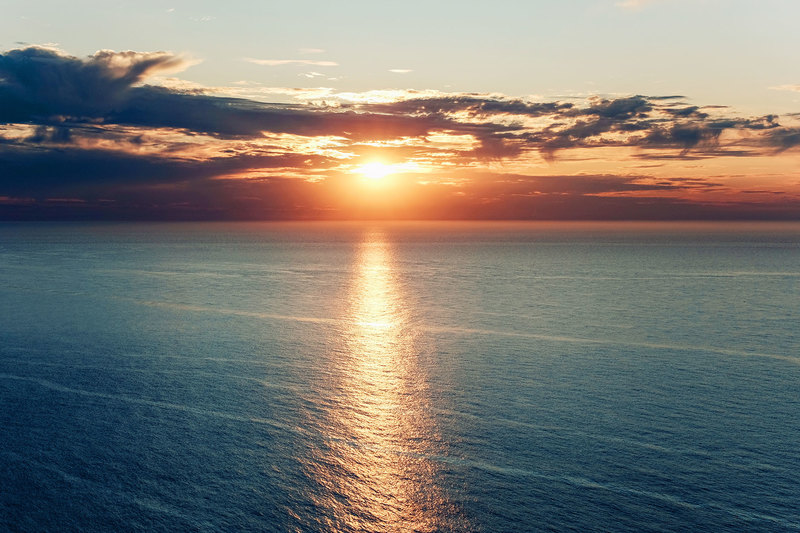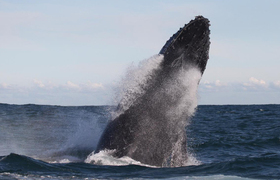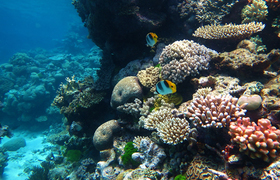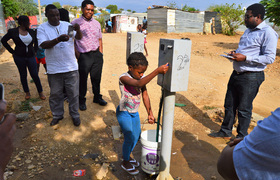UCT participates in global Mission Atlantic project
21 October 2020 | Story Staff writer. Photo Adobe Stock. Read time 4 min.
Global ocean experts, including an academic from the University of Cape Town (UCT), have teamed up to map and assess the current and imminent environmental risks posed by climate change, natural disasters and human activities – and their effects on the Atlantic Ocean ecosystems.
The project, called Mission Atlantic, will also explore sustainable development of the Atlantic Ocean and is the first initiative of its kind to develop and systematically apply Integrated Ecosystem Assessments (IEAs) at the Atlantic basin scale.
UCT’s Dr Lynne Shannon of the Department of Biological Sciences in the Faculty of Science has joined experts from Europe (Belgium, Denmark, France, Germany, Iceland, Ireland, Norway, Portugal, Spain, Sweden and the United Kingdom), South America (Brazil) and North America (the United States and Canada) to participate in this global study.
The €11.5 million initiative has been funded by one of the European Union’s (EU) Horizon 2020 programmes. Using the unique IEA approach, this study engages scientists, marine stakeholders and resource managers, and incorporates all components of the ecosystem, including human activities, into the decision-making process. By doing this, project managers and policymakers will be entirely informed by science and will be able to balance the need for environmental protection with secure, sustainable development.
Multidisciplinary mission
Mission Atlantic uses high-resolution ocean models, artificial neural networks, risk assessment methods and advanced statistical approaches to accurately assess pressures imposed on the Atlantic marine ecosystems. Further, it identifies the parts most at risk of natural hazards and the consequences of human activities.
Using a multidisciplinary approach, the team will combine existing data from global ocean monitoring programmes with new observations collected using advanced marine robots and acoustic sensors. These tools will be used to explore plankton and fish distribution in unknown waters, including the subarctic and tropical regions in the Atlantic Ocean.
“We are excited to undertake IEAs that build upon some of the initial ecological and climate risk assessments previously done in the region.”
According to Dr Shannon, who is leading Mission Atlantic’s southern Benguela case study, the work undertaken will aim to address:
- how researchers facilitate the operationalisation of ecosystem-based management in the southern Benguela
- how researchers can expand their understanding of ecosystem changes in the southern Benguela in a way that practically enhances adoption of improved fisheries management strategies in a changing environment.
“We are excited to undertake IEAs that build upon some of the initial ecological and climate risk assessments previously done in the region,” she said.
“[In respect of the second point], much work has already been done in documenting and quantifying ecosystem changes in the Benguela and classifying regime shift periods. But the gap is the practical application and uptake of such work in fisheries management.”
Further focus
Besides expanding scientific knowledge on the Atlantic Ocean, Mission Atlantic will also focus on improving education and professional development opportunities in countries bordering the north, south and tropical Atlantic Ocean.
In addition, the project will contribute to the commitment outlined in the Belém Statement on Atlantic Ocean Research and Innovation Cooperation between the EU, Brazil and South Africa; and under the United Nations’ Decade of Ocean Science for Sustainable Development (2020–2030) will support society to achieve a sustainable ocean.
 This work is licensed under a Creative Commons Attribution-NoDerivatives 4.0 International License.
This work is licensed under a Creative Commons Attribution-NoDerivatives 4.0 International License.
Please view the republishing articles page for more information.










